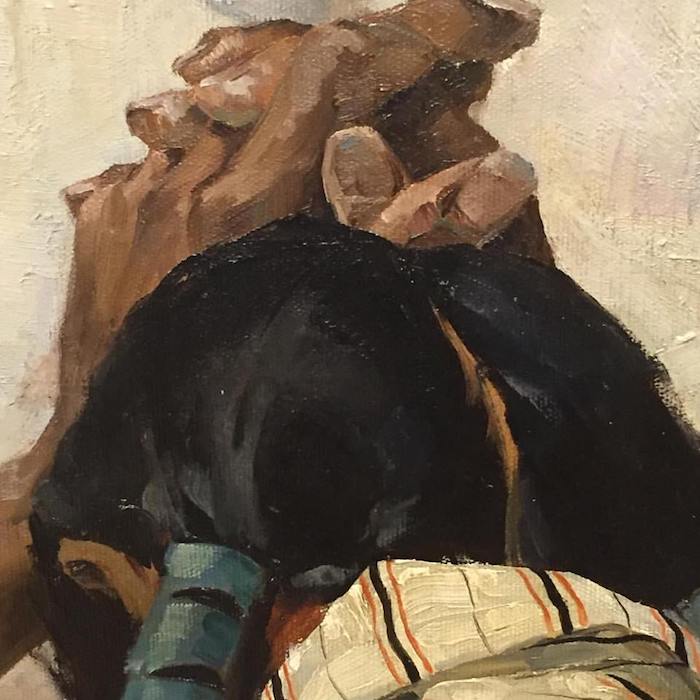When my kids were little, we really enjoyed watching Disney movies. No, let me be honest—we still do even now that the kids are grown. Before our kids were born, my husband and I were unashamed to go see Disney and Pixar movies even without a child along with us as cover. One of our favorites, Aladdin, came out two years before we had our first child—and we couldn’t wait to share it with her and her siblings when they were old enough. The genius casting of Robin Williams as the Genie made this film and its lessons about love, friendship, integrity and personal honesty just about perfect (after they fixed some troubling song lyrics).
And yet, as much as we have all at one time, wished for a genie of our own, I remember that as I was growing up and putting away childish things (except a love of animated movies) I noticed that I had a tendency in my prayer to try to make God into a genie. When I would pray each night, I would catch myself reciting a laundry list of wants and wishes. Some of them were exceedingly shallow—“please help me get through this test”— and others were just as misguided, like praying that there would be less fighting and yelling in my home. God is NOT a genie, or a wish-fulfillment device. The only people each of us can pray to God about changing is—yep, each of us ourselves.
As I was meditating on this Sunday’s readings, I struck by this statement in Paul’s letter to the Romans:
The Spirit helps us in our weakness; for we do not know how to pray as we ought, but that very Spirit intercedes with sighs too deep for words. And God, who searches the heart, knows what is the mind of the Spirit, because the Spirit intercedes for the saints according to the will of God.
Very early in my life, I realized I didn’t know how to “pray as I ought.” Once I stopped the God-as-genie prayers, I prayed rote prayers, like the Lord’s Prayer, but the problem was that it was too easy to skim over the words when they became too familiar, instead of feeling anew the sentiments behind them. I began to study prayer traditions around the world and collect prayers, like this one by St. Augustine for purity which was so funny and yet real:
“Oh Lord, help me to be pure,
but not yet.”
I learned I could pray with beads, or by tying knots, or by focusing on my breath, or by mindful, deliberate movement, like yoga.
A few years ago, I began to write a new prayer almost every day. I even wrote a prayer cycle based on the Lord’s Prayer. I became aware of, in the words of the 17th century monastic Brother Lawrence, prayer as the “practice of the presence of God,” to begin to try to spend time in conversation with God, “living as if there were none but God and I in the world” and yet of listening rather than talking, and of offering up whatever I was doing to God whenever I could. On the week before I started seminary, when Michael Brown was killed on the streets of Ferguson, Missouri, I meditated about “praying with our feet” as we marched in peaceful protest against systemic racism—a kind of prayer that has bloomed again from yet still more violence against people of color in the last few weeks.
I am still no expert in prayer. But here we are Lord, standing in the need of prayer, as the old beloved spiritual goes. As we face rising COVID-19 surges again, and as we face more deaths of people of color in their homes and in the streets, never have we needed to pray “as we ought”—prayer where we listen to God, prayer where we seek God’s wisdom, prayer where we admit our faults and refusals to see injustices, and resolve to set our feet upon a better path. Prayer that doesn’t focus on what we ourselves hope to get but on what we can offer to the world to the glory of God. Prayer that is led by the Holy Spirit, if only we are brave enough to set her free within our hearts and our lives. Prayer that leads us deeper into community with each other, and strengthens us for the holy work with which God blesses us: to love each other in word, and love each other in deed, and love each other even if that means giving way in our own desires so that another may flourish. And so, right now, I pray:
Our Father in heaven,
loving Parent and Creator,
tender Mother,
save us from the time of trial,
for we are prone to wander
and lose our way.
Make us stronger in our faith
and more willing to wrestle with the angel of doubt.
Guide us into living and loving more fully
according to your precepts.
Help us turn aside all vain ambitions
and concentrate fully upon your Word.
Give us courage to make our hearts bigger,
even if that makes them bigger targets,
for love is always the answer.
Help us to persevere
through the difficulties of life,
knowing that You are always with us.
Give us the sight to see hope amid darkness.
O Loving One, hear our prayers
and grant your benediction and grace
to those whose needs we now raise before You.
Amen.
The photo is a detail from Walter Ufer’s 1919 painting Hunger, which I took a few years ago at Gilcrease Museum here in Tulsa.
The Rev. Leslie Scoopmire is a writer, musician, and a priest in the Diocese of Missouri. She is priest-in-charge of St. Martin’s Episcopal Church in Ellisville, MO. She posts daily prayers at her blog Abiding In Hope, and collects spiritual writings and images at Poems, Psalms, and Prayers.

